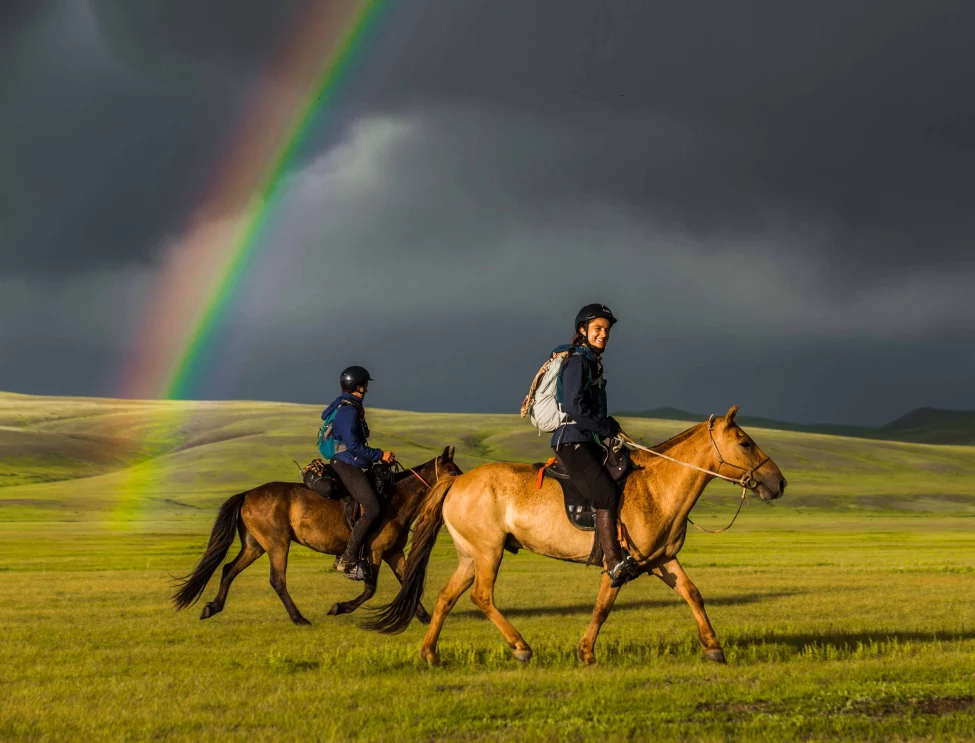North Queensland Register - Full Story
By Julie Paul
Wednesday, 14 November 2007
News from the eastern states indicates the equine influenza outbreak is still being contained and, if biosecurity measures continue to be observed, Australia is likely to be free of the virus by mid-2008.
Primary Industries & Resources South Australia's chief veterinary officer, Rob Rahaley, made the announcement at a meeting of professional and recreational riders, hosted by Horse SA at Morphettville.
Attendees included representatives from
- showjumping,
- eventing,
- dressage,
- showing,
- pony club,
- endurance riding organisations,
- farriers and
- administrators from the Equestrian Federation of Australia.
Dr Rahaley said the biosecurity measures presently required for gatherings of more than nine horses will still be enforced.
He outlined the type of precautions necessary when horse events gradually start again.
There are three main areas of consideration:
• Venue selection
• Biosecurity plans
• Contingency plans
Under the heading of venue selection, he stressed the need to:
• Keep members of the public away from the horses or exclude them from the venue altogether.
• Have adequate - and separate - toilet and washing areas for competitors and spectators.
• Provide an area for horses to be confined if they show any signs of infection.
• Choose a location able to accommodate a large number of horses in case of infection and subsequent quarantine.
He said biosecurity measures recommended are comprehensive. They include:
• Ensure your organisation has the power to insist the following precautions can be taken
• Adequate security (gatekeepers, volunteers ensuring spectators were nowhere near horses etc)
• No dogs at the venue. Dogs can carry the virus on their skins just as people can on their hands, hair and clothing
• Horses must not share water or feed containers
• Minimise contact between competitors
• Enforce compliance with the rules. People will be asked to sign statements declaring they have not been in contact with any infected horse, or with any person who may have had contact with an infected horse.
• Monitor horses for the next five days, including regular inspection and taking of temperatures
• Keep comprehensive records of all horses at the venue,
- where they have come from,
- who has been in contact with them,
- do they have clean equipment,
- are they showing normal temperature readings, etc.
• The records are to be kept as long as there is any chance of a horse showing signs of infection after the event.
Dr Rahaley said a contingency plan must also be considered.
In a worst-case-scenario, the organisation must be able to ensure there was adequate provision for horses if the whole site is quarantined,
- stabling of yards,
- getting in supplies of feed,
- providing disinfectant, accommodation and washing facilties for riders.
The quarantine zone should be anything up to a 10-kilometre radius around the lockdown area, and quarantine could easily last for six weeks.
Dr Rahaley stressed the need for careful planning to minimise any risk of infection and to comply with the law.
He said PIRSA would make random checks on any horse event at any time.
"When it is proved that the virus no longer exists in Australia, event organisers can go back to their previous arrangements," Dr Rahaley said.
But he thinks many organisations will choose to adopt the above precautions permanently, realising that they are largely a matter of common sense.
When asked why recreational riders are seen as the 'poor relations' of the horse world and why the virus vaccine is only available to the racing industry, Dr Rahaley said he believed that the virus could still be eliminated without country-wide vaccinations.
"The vaccination program is very expensive," he said. "And owners would be committted to a program costing $90 million - Australia-wide - each year.
"The recreational riders are the ones who can least afford more costs added to the already heavy expense of keeping a horse."
SOURCE: Breaking news from the Stock Journal, SA, November 15.
Friday, November 16, 2007
Aust hopes to be free of EI virus by mid-2008 - Nov 14 2007
Subscribe to:
Post Comments (Atom)
Meet the Amazonian racing 500km across Patagonia for women's health
AboutAmazon.eu - Full Article Written by About Amazon Team February 17 2026 Madeleine, Pan-EU Account Executive at Amazon in France, is ...

-
Inside.fei.org 17 December 2020 The FEI Board took a series of key decisions on allocation, cancellation, and reopening of bids for FEI C...
-
Michael Pollard was one of the four winners of the 2025 Mongol Derby (Kathy Gabriel) Ca.News.yahoo.com - Full Article Annabel Grossman ...
-
BNA.bh - Full Article 17 Aug 2025 London, Aug. 17 (BNA): His Highness Shaikh Nasser bin Hamad Al Khalifa, Representative of His Majes...


No comments:
Post a Comment